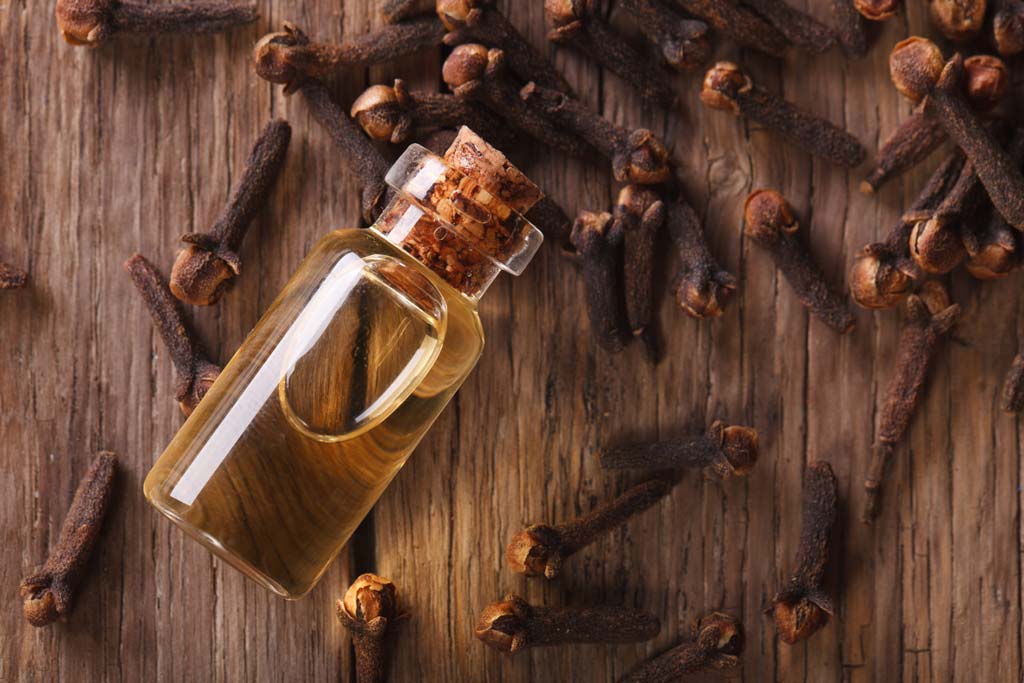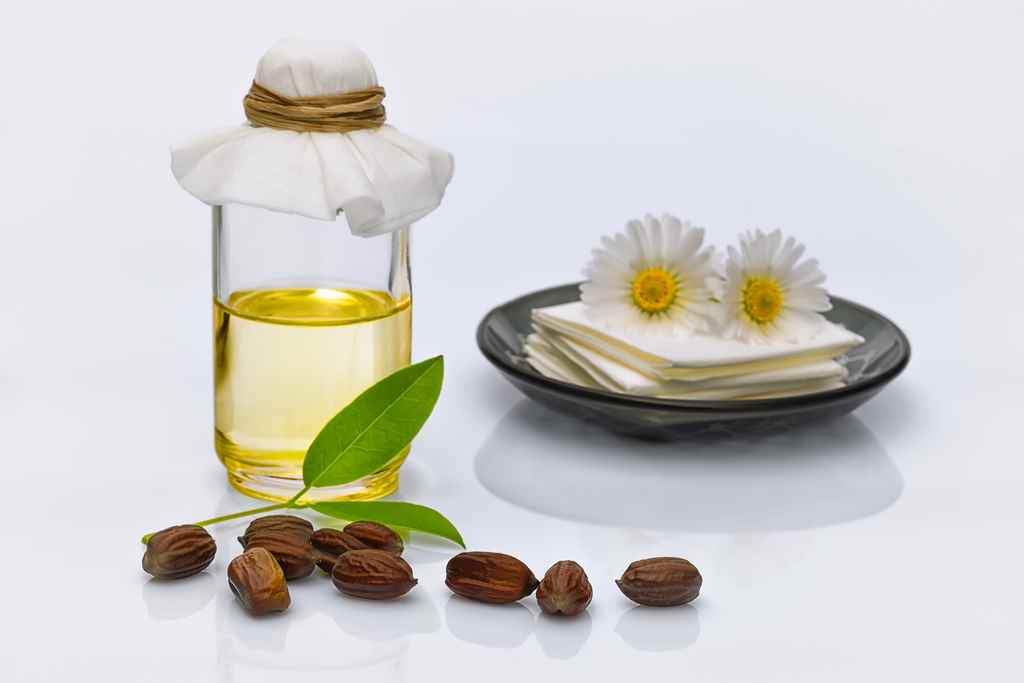Lemongrass is very commonly used as a flavouring agent in many food and beverages. It has a citrusy flavour close to that of lemon. Cymbopogon which is commonly known as Lemongrass is a tall perennial herb from Poaceae grass family. This plant generally grows in a green cluster of tall and boat-shaped leaves. This valuable herb originally belongs to hot and equatorial regions like Asia, Southeast Asia, and Africa. Recently it has become the essential oil for choice for its refreshing fragrance and for many other therapeutic benefits and you’re very likely to come across this aroma in the hotel lobbies. In addition to its fragrance, people are using lemongrass oil for hair growth.
There are two varieties of Lemongrass that are commonly known:
- Cymbopogon citratus: mostly known for its uses in culinary purpose.
- Cymbopogon flexousus: known for its uses in perfumes
What Is Lemongrass Oil? What is the Composition Present in It?
Lemongrass Oil is a type of essential oil which is derived from the leaves of Lemongrass by the process of steam distillation. This oil has a thin consistency. It has got a pale or bright yellow colour. Lemongrass Oil has got a refreshing fragrance which is similar to that of lemon. It has got a strong, distinct aroma due to which is commonly used in Aromatherapy.
Geographical factors decide the chemical composition of Lemongrass Oil. Lemongrass Oil mainly constitutes of compounds such as hydrocarbon terpenes, alcohol, ketones, esters and aldehydes. This essential oil mainly consists of the component named Citral which constitutes about 70-80% of it. Lemongrass Oil is also loaded with Vitamins like Vitamin A, B1, B2, B3, B5, B6, folate and Vitamin C. This essential oil is also the powerhouse of essential minerals such as Zinc, Magnesium, Phosphorus, Manganese, Copper, Potassium, Calcium and Iron. Presence of these compounds is responsible for its antifungal, antiseptic, insecticidal and counterirritant properties.
Lemongrass is popularly used as a flavouring agent in cooking in Asian cuisine. We recommend adding Anveya's Lemongrass Oil to your skin care and hair care products because of its beauty benefits.
ANVEYA LEMONGRASS OIL, 100% PURE, 15ML
- Use for SKIN CLEANSING & TONING.
- Contains antifungal properties that help relieve SCALP INFECTION & DANDRUFF
- Natural Insect and MOSQUITO REPELLENT
- STRESSBUSTING AROMATHERAPY: one of the most refreshing fragrances
Is it Safe to Use Lemongrass Oil?
Generally, Lemongrass Oil is considered safe for topical application after required dilution but some people with sensitive skin may experience a burning sensation or may develop rashes. It is important to dilute Lemongrass Oil with a suitable carrier oil before topical application. To be on a safer side always do a patch test before applying Lemongrass oil and any other essential oils on your hair or skin. Also, Lemongrass Oil is not considered safe for internal use.
Also Read : A Complete Guide to Diluting Essential Oils
Benefits of Lemongrass Oil for Hair

Everyone loves to have a lustrous, thick and healthy hair. But due to several external factors like pollution, dirt, dust, using too many chemicals on hair and excessive usage of hairdryers tend to make your hair dull and lifeless. But don’t worry as Lemongrass Oil rescues your hair with lots of benefits.
1. Treating Hair fall
Lemongrass Oil has got antibacterial and antifungal properties due to which it helps to keep scalp infections at bay and prevents hair fall.
Method
- Take some Coconut Oil as a carrier oil and mix a few drops of Lemongrass oil to it. Use 2 drops of the essential oil per teaspoon of the carrier oil.
- Apply this mixture all over your scalp and let it remain for 30 minutes.
- Wash off with herbal shampoo and then condition your hair.
- Regular application will help prevent hair fall
2. Treating Dandruff
Lemongrass Oil has got anti-inflammatory and astringent property due to which it is very beneficial in treating dandruff with effective home remedies, as it helps to soothe and calm down the itchy and irritated scalp.
Method
- Mix a few drops of Lemongrass oil with Olive Oil. Use 2 drops of the essential oil per teaspoon of the carrier oil.
- Apply this mixture on your scalp.
- Keep it for one hour before washing off.
- Rinse with a mild shampoo.
3. Promotes Hair growth
Lemongrass oil acts as a good stimulant. Massaging Lemongrass Oil with a carrier oil helps to open up hair follicles and also promotes blood circulation. It helps to remove the dirt and grime which gets locked inside the pores and thereby promoting hair growth.
Also Read : Benefits & Uses of Lemongrass Oil for Hair
Method
- Mix a few drops of Lemongrass Oil with Almond Oil or Jojoba Oil. Use 2 drops of the essential oil per teaspoon of the carrier oil.
- Apply generously all over your scalp and hair.
- Let it remain for one hour. Wrap your head with a towel.
- After one hour wash off and condition your hair.
4. Kills Lice
Essential Oils are very effective in treating Head Lice as they have a distinct fragrance and aroma makes it inevitable for the head lice to thrive on human hair by suffocating it.
Method
- Add a few drops of Lemongrass Oil on your nit comb and comb your hair. Use 2 drops of the essential oil per teaspoon of the carrier oil.
- Alternatively, mix Neem Oil with few drops of Lemongrass Oil and massage our scalp.
- Keep it for 30 minutes and comb your hair with a nit comb. All the dead lice and it will come along the comb.
- Wash off your hair with herbal shampoo and condition it.
5. Controls Oil on Scalp
Lemongrass Oil has astringent property due to which it helps control the production of sebum on the scalp. The sebum gets locked into the pores along with dirt and grime and reduced blood supply to the hair follicles, resulting in hair fall. Lemongrass oil controls the sebum on the scalp and helps in preventing hair loss.
Method
- Mix a few drops of Lemongrass oil to Olive Oil. Use 2 drops of the essential oil per teaspoon of the carrier oil.
- Massage it properly on your scalp and hair.
- Keep it for 30 minutes. Warp your head with a hot towel.
- Wash it off with a mild shampoo.
What are the Other Uses of Lemon Grass Oil?

- Headaches: Lemongrass Oil is helpful in treating Headaches. Mix 1-2 drops of Lemongrass oil with 1 tablespoon of jojoba oil and slowly massage on your temples.
- Muscle Pain: Lemongrass Oil improves blood circulation and hence very effective in treating muscle cramp, sprains. Mix a few drops of Lemongrass Oil with Castor Oil and apply to the affected area for immediate relief.
- Joint Pain: Lemongrass Oil has anti-inflammatory properties due which it has a soothing effect on the inflamed joints and helps to relieve pain. Mix 1-2 drops of Lemongrass Oil with 1 teaspoon of Moringa Oil (also known for its anti-inflammatory property) and rub well on the affected joints.
- Indigestion: Lemongrass Oil is known to relieve stomach ailments. Mix 2-3 drops of Lemongrass Oil with Coconut Oil and rub it on your stomach area for relief.
- Glowing Skin: Lemongrass oil is known for its antiseptic, antifungal and antibacterial properties due to which it is very effective in treating pimples, acne, blackheads. This oil has non-comedogenic properties due to which it won’t clog the pores and a natural detoxifier. Taking facial steam by mixing a few drops of Lemongrass Oil in the hot water pot, opens all the pores and cleanses the dirt and grime from the face giving a healthy and glowing skin. Taking face scrub is also fine for clean & glowing skin as a daily routine.
- Healing Wounds: Lemongrass oil has antiseptic and astringent properties which help in the healing of wound quickly. Mix 2 drops of Lemongrass Oil with Turmeric Oil and apply twice on the wound daily.
- Natural Deodorant: The refreshing smell of Lemongrass Oil helps to offset body odour and its antibacterial property helps to kill bacteria responsible for body odour. Mix 5-6 drops of Lemongrass Oil with Jojoba Oil and add little baking soda to it. Mix well and apply on underarms for relief from body odour.
Also Read : Lemongrass Oil- Its Benefits And Uses
Cautions/Side Effects of Lemongrass Oil
Lemongrass Oil is generally considered safe, but check out some of the precautions to take when using lemongrass oil.
- Always do a small patch test to know whether you’re allergic to lemongrass oil. People allergic to lemongrass oil or having sensitive skin may see irritation or rashes on the use of lemongrass oil. Discontinue in case of any discomfort.
- Avoid the use of Lemongrass Oil by children or pets. Avoid using lemongrass oil if you’re pregnant or nursing or under medical care or distress. People with a respiratory disorder should avoid using lemongrass oil too.
- If you’re unsure or undergoing medical treatment, always seek advice from your doctor.
FAQs
1. How to make Lemongrass Oil for Hair?
The process is simple and the preparation time is also minimal. If you have Lemongrass handy, then let's start with the preparation
- Take 6-8 fresh stalk of Lemongrass after removing the leaves and sundry it for a few days.
- Break the stalk and crush it with a mortar and pestle.
- Transfer the contents into a medium-sized clean jar.
- Heat up the carrier oil of your choice(sweet almond oil/jojoba oil), making sure you don’t boil it.
- Pour the oil into the jar and mix the contents well.
- Airtight the container and leave to infuse for 3-4 days.
- After 4 days, strain the oil through cheesecloth.
- Your Lemongrass Oil is ready for use.
2. How to Use Lemongrass Oil for hair?
Lemongrass Oil is a wonderful remedy for people struggling with various hair problems. Lemongrass Oil is used for various hair problems by mixing it with a carrier oil like coconut oil, sweet almond oil, jojoba oil, olive oil and apply this mixture generously on your scalp and hair. Lemongrass oil also blends well with rosemary oil, sage oil, lavender oil, tea tree oil, peppermint oil to name a few. Always remember the dilution ratio should be 1-2% of essential oil or lesser, in a suitable carrier oil. Thus Lemongrass Oil is a quick remedy for all your hair problems.
Disclaimer: All the content on anveya.com/blogs is solely for information. It is not intended to be a substitute for professional medical advice, diagnosis or treatment. Always seek the advice of your physician or a qualified health care provider. The information, suggestion or remedies mentioned on this site are provided without warranty of any kind, whether express or implied.




